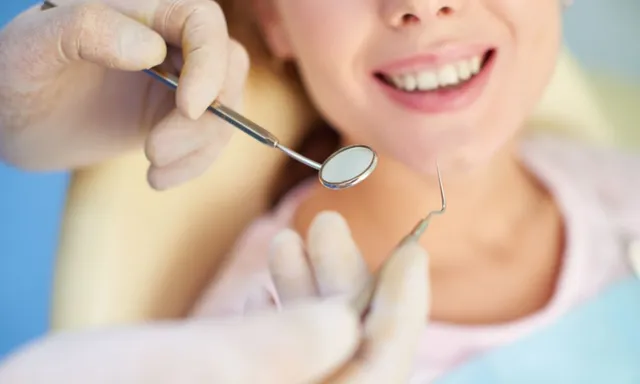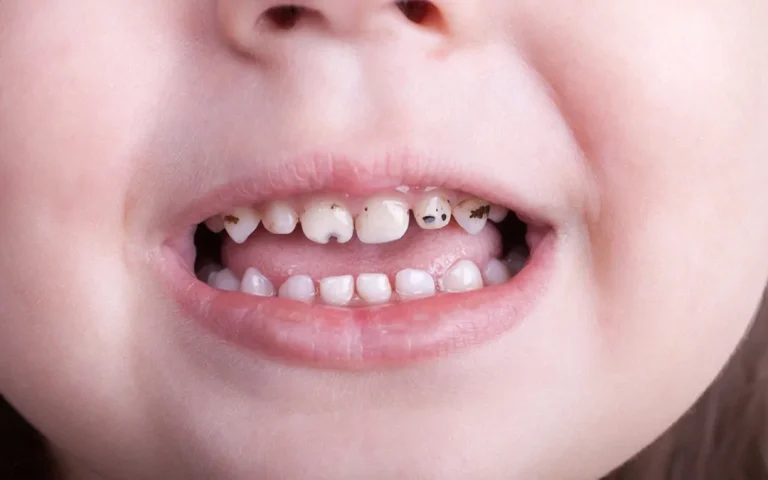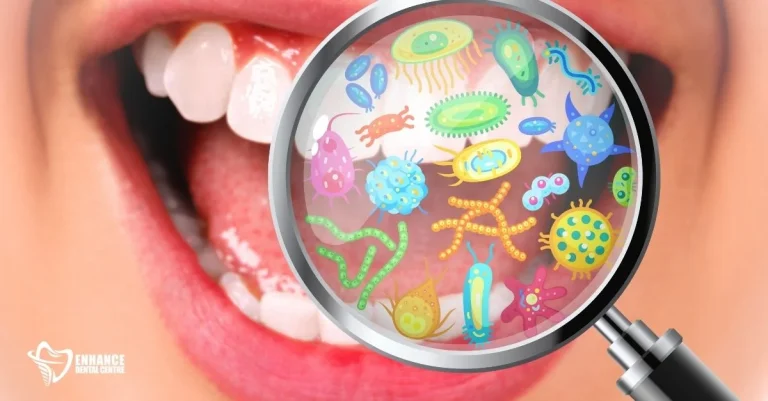Creating a Personalized Oral Care Routine Based on Your Dental Needs
Understanding Your Unique Dental Needs
Let’s face it—your mouth is as unique as your fingerprint. Sure, we all have teeth (well, most of us), but that’s where the similarities end. From genetics to lifestyle choices, there are a ton of factors that make your dental needs one-of-a-kind. And guess what? That means the same old “brush twice a day and floss” advice doesn’t cut it for everyone.
Think about it: do you have sensitive teeth that scream in protest when you sip hot coffee? Or maybe you’re rocking braces and feel like cleaning your teeth is a full-time job. Perhaps you’ve noticed your gums bleeding more often than they should. These aren’t just random annoyances—they’re clues about what your mouth really needs.
Your dental history plays a big role too. If you’ve had cavities in the past, you might need to up your fluoride game. If gum disease runs in your family, you’ll want to focus on keeping those gums in tip-top shape. And let’s not forget lifestyle factors—like whether you’re a coffee addict, a smoker, or someone who loves sugary snacks. All of these things impact your oral health in different ways.
That’s why regular dental check-ups are so important. Your dentist isn’t just there to clean your teeth (though that’s a big part of it). They’re like detectives, uncovering the specific needs of your mouth and helping you build a plan that works for you. So, before you dive into creating your personalized oral care routine, take a step back and ask yourself: what’s really going on in my mouth?
Because here’s the thing: when you understand your unique dental needs, you’re not just brushing and flossing—you’re taking care of your smile. And trust me, your future self will thank you.
Tailoring Your Toothbrush Choice to Your Dental Condition
Alright, let’s talk toothbrushes. You might think any old brush will do the trick, but here’s the deal: not all toothbrushes are created equal. The right one can make a world of difference, especially if you’re dealing with specific dental issues. So, how do you pick the perfect match for your pearly whites? Let’s break it down.
Soft-Bristle Brushes for Sensitive Teeth and Gums
If your teeth feel like they’re throwing a tantrum every time you eat something hot, cold, or sweet, you’ve probably got sensitive teeth. And guess what? A hard-bristle brush is only going to make things worse. Instead, go for a soft-bristle toothbrush. It’s gentle on your enamel and gums, so you can clean your teeth without feeling like you’re scrubbing them with sandpaper.
Electric Toothbrushes for Better Plaque Removal
Electric toothbrushes aren’t just fancy gadgets—they’re legit game-changers. Studies show they can remove more plaque than manual brushes, which is a big win for your gum health. Plus, many come with built-in timers to make sure you’re brushing for the full two minutes. If you’re someone who tends to rush through your brushing routine (no judgment here), an electric toothbrush might be your new best friend.
Specialized Brushes for Braces or Orthodontic Care
Got braces? Congrats on working toward that killer smile! But let’s be real: cleaning around brackets and wires can feel like solving a Rubik’s Cube. Enter orthodontic toothbrushes. These bad boys are designed with V-shaped bristles to clean around your hardware, making sure no food particles are left behind. And don’t forget interdental brushes—they’re like tiny cleaning wands for those hard-to-reach spots.
How Often to Replace Your Toothbrush
Here’s a pro tip: your toothbrush isn’t a forever item. Over time, the bristles wear down and become less effective. Dentists recommend replacing your toothbrush (or brush head, if you’re using an electric one) every three to four months. Or, if you’ve been sick, swap it out sooner to avoid reintroducing germs into your mouth.
The bottom line? Your toothbrush should work for you, not against you. Whether you’re dealing with sensitivity, braces, or just want a deeper clean, there’s a brush out there with your name on it. So, take a minute to think about what your teeth really need—it’s a small change that can make a big difference.
Next up, we’ll dive into balancing other oral hygiene practices like flossing and mouthwash. Trust me, your mouth will thank you!
Balancing Oral Hygiene Practices: Flossing, Mouthwash, and Beyond
Okay, let’s get real for a second. Brushing your teeth is like the MVP of oral care, but it’s not a one-player game. If you really want to step up your dental hygiene, you’ve got to bring in the rest of the team: flossing, mouthwash, and maybe even a few bonus players. Think of it as building your own oral care dream team. Ready to meet the squad?
The Importance of Flossing for Gum Health
First up, flossing. Yeah, I know—it’s the step most of us love to skip. But here’s the thing: your toothbrush can’t reach everywhere. Those tiny spaces between your teeth? They’re like a five-star resort for plaque and food particles. Flossing is your way of crashing that party.
If traditional floss feels like a hassle, try floss picks or water flossers. They’re easier to use and just as effective. And if you’re wearing braces, flossing is non-negotiable. Trust me, your gums will thank you later.
Choosing the Right Mouthwash
Mouthwash is like the cherry on top of your oral care routine. But not all mouthwashes are created equal. Here’s a quick rundown:
- Antibacterial mouthwash: Great for fighting gum disease and bad breath.
- Fluoride mouthwash: Helps strengthen enamel and prevent cavities.
- Alcohol-free mouthwash: Perfect for sensitive mouths or if you hate that burning sensation.
Pick one that aligns with your needs, and don’t forget to swish for the full 30 seconds. It’s like a mini spa treatment for your mouth.
Interdental Brushes and Water Flossers
If you’ve got braces, implants, or just really tight spaces between your teeth, interdental brushes are a lifesaver. They’re like tiny bottle brushes that clean between your teeth and around dental work. And water flossers? They’re basically power washers for your mouth—perfect for people who hate traditional flossing.
Here’s the thing: your oral care routine doesn’t have to be complicated. Start with the basics—brushing twice a day and flossing once—and then add in mouthwash or other tools as needed. The key is consistency. Find a routine that fits your lifestyle and stick with it.
Creating a Daily Routine That Works for You
For example, if you’re always rushing in the morning, keep it simple: brush, floss, and go. At night, when you’ve got more time, add in mouthwash or a water flosser. It’s all about finding what works for you.
So, what’s your oral care dream team looking like? Whether it’s floss, mouthwash, or something extra, the goal is to keep your mouth healthy and happy. And hey, your dentist will definitely notice the effort at your next check-up.
Next, we’ll tackle how to address specific dental concerns with personalized solutions. Spoiler alert: it’s easier than you think!
Addressing Specific Dental Concerns with Personalized Solutions
Let’s get down to the nitty-gritty. You’ve got your toothbrush, floss, and mouthwash ready to go—but what if you’re dealing with specific dental issues? Whether it’s sensitive teeth, braces, gum problems, or a desire for a brighter smile, there’s a solution for that. Let’s dive into some common concerns and how to tackle them like a pro.
Sensitive Teeth: Gentle Care for a Touchy Situation
If your teeth feel like they’re staging a protest every time you eat ice cream or sip hot tea, you’re not alone. Sensitive teeth are super common, but that doesn’t mean you have to live with the discomfort. Start by switching to a toothpaste designed for sensitivity—look for ingredients like potassium nitrate or stannous fluoride. These help block the tiny tubules in your teeth that cause pain.
Pair that with a soft-bristle toothbrush and gentle brushing techniques. Oh, and avoid whitening toothpastes for now—they can make sensitivity worse. Your teeth will thank you.
Braces Care: Keeping It Clean (Without Losing Your Mind)
Braces are amazing for straightening your smile, but let’s be honest: they’re high-maintenance. Food loves to get stuck in brackets and wires, and cleaning around them can feel like a full-time job. But don’t worry, we’ve got you covered.
Start with an orthodontic toothbrush or an electric toothbrush with an orthodontic head. These are designed to clean around brackets and wires without damaging them. Add in interdental brushes or a water flosser to tackle those hard-to-reach spots. And don’t forget to rinse with an antibacterial mouthwash to keep bacteria at bay.
Gum Health: Keeping the Foundation Strong
Your gums are the foundation of your smile, so keeping them healthy is a must. If you’ve noticed bleeding, swelling, or redness, it’s time to step up your gum care game. Start by flossing daily—yes, daily. It’s the best way to remove plaque and prevent gum disease.
Switch to a toothpaste that’s formulated for gum health, and consider using an antibacterial mouthwash to reduce bacteria. If your gums are really giving you trouble, talk to your dentist. They might recommend a professional cleaning or other treatments to get things back on track.
Whitening: Brightening Your Smile Safely
Who doesn’t want a brighter smile? But before you go all-in on whitening products, let’s talk about doing it safely. Over-the-counter whitening kits can work, but they’re not always the best option for sensitive teeth or enamel issues.
Instead, start with a whitening toothpaste that’s gentle on your enamel. If you want more dramatic results, talk to your dentist about professional whitening treatments. They’re safer, more effective, and tailored to your specific needs.
The key here is to address your concerns without compromising your overall oral health. Whether it’s sensitivity, braces, gum issues, or whitening, there’s a solution that’s right for you. And remember, your dentist is your best ally in figuring out what works.
Next up, we’ll talk about how to build a routine that sticks—because consistency is the secret sauce to a healthy smile. Stay tuned!
Building a Routine That Sticks
Let’s be honest: creating a personalized oral care routine is one thing, but sticking to it? That’s where the real challenge lies. Life gets busy, and sometimes brushing and flossing can feel like just another item on your never-ending to-do list. But here’s the good news: with a few simple tricks, you can turn your oral care routine into a habit that feels effortless. Let’s break it down.
Start Small and Build Up
If you’re trying to overhaul your entire routine overnight, you’re setting yourself up for failure. Instead, start small. Focus on brushing twice a day for two minutes each time. Once that feels like second nature, add in flossing. Then, gradually incorporate mouthwash or other tools. Baby steps are the name of the game.
Pair It with Another Habit
One of the easiest ways to make something stick is to pair it with a habit you already have. For example, brush your teeth while you’re in the shower or floss while you’re watching TV. By linking your oral care routine to something you already do every day, you’re more likely to remember it.
Set Reminders (Yes, Really)
If you’re the type of person who forgets to brush at night (no judgment here), set a reminder on your phone. Or, if you’re old-school, leave a sticky note on your bathroom mirror. Sometimes, a little nudge is all it takes to stay on track.
Track Your Progress
There’s something satisfying about checking things off a list, right? Use a habit tracker or a simple calendar to mark off the days you stick to your routine. Seeing your progress can be super motivating—plus, it’s a great way to hold yourself accountable.
Adjust as Needed
Your oral care routine isn’t set in stone. If something isn’t working for you, tweak it. Hate traditional floss? Try a water flosser. Can’t stand the taste of your mouthwash? Switch to a different flavor. The goal is to create a routine that works for you, not one that feels like a chore.
Involve Your Dentist
Your dentist isn’t just there to clean your teeth—they’re also your personal oral care coach. At your next check-up, ask for feedback on your routine. Are there areas you’re missing? Could you be doing something better? Your dentist can help you fine-tune your routine for maximum results.
Make It Fun
Who says oral care has to be boring? Crank up your favorite playlist while you brush, or challenge your family to a flossing competition. When you make it enjoyable, you’re more likely to stick with it.
The bottom line? Consistency is key. It’s not about being perfect—it’s about showing up for your smile every day. And trust me, your future self will thank you.
Conclusion
Creating a personalized oral care routine isn’t just about having a healthy smile—it’s about feeling confident and taking care of yourself. From choosing the right toothbrush to balancing flossing and mouthwash, every step you take makes a difference.
So, what’s your next move? Whether it’s booking a dental check-up, trying a new product, or simply committing to flossing every day, the power is in your hands. Your smile is worth it.
Got questions or tips of your own? Share them in the comments or reach out to your dentist for personalized advice. Here’s to a healthier, happier smile!
FAQs
Q: Why is a personalized oral care routine important?
A: A personalized routine addresses your specific dental needs, preventing problems like cavities, gum disease, and enamel erosion more effectively than a generic approach.
Q: How do I determine my specific dental needs?
A: Consult with your dentist or dental hygienist. They can assess your oral health, identify risk factors, and recommend tailored strategies.
Q: What are the key components of a good oral care routine?
A: Brushing twice daily, flossing daily, using mouthwash, and regular dental check-ups are essential.
Q: What type of toothbrush should I use?
A: A soft-bristled toothbrush is generally recommended to avoid damaging your gums and enamel. Consider an electric toothbrush for enhanced cleaning.
Q: How often should I floss?
A: Daily flossing is crucial to remove plaque and food particles from between your teeth, where your toothbrush can’t reach.
Q: Is mouthwash necessary?
A: Mouthwash can help kill bacteria, freshen breath, and prevent plaque buildup. Choose a fluoride mouthwash for added protection.
Q: What are some considerations for people with sensitive teeth?
A: Use a toothpaste designed for sensitive teeth and avoid overly acidic foods and drinks.
Q: How does diet affect my oral health?
A: A diet high in sugar and acidic foods can increase your risk of cavities and enamel erosion. Limit these and eat a balanced diet.
Q: How often should I visit the dentist?
A: Most people should visit the dentist every six months for a check-up and cleaning. Your dentist may recommend more frequent visits based on your individual needs.
Q: How do I know if my oral care routine is effective?
A: Regular dental check-ups will help determine the effectiveness of your routine. Signs of a good routine include healthy gums, minimal plaque, and no new cavities.







